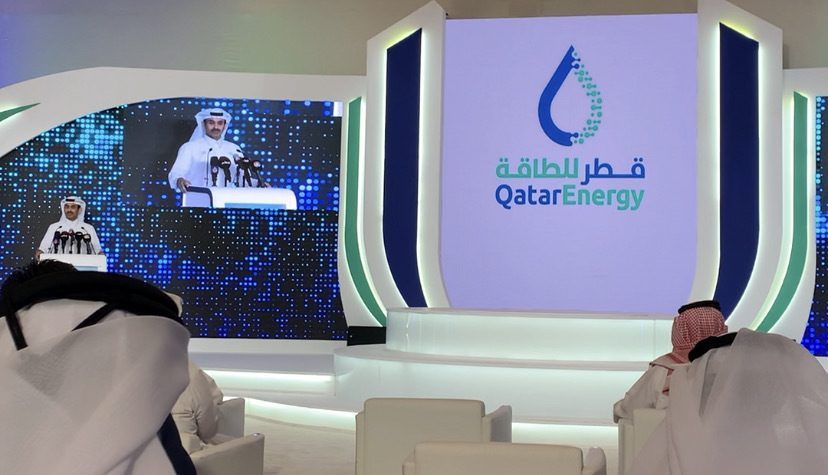This week, energy regulator Ofgem said that London is facing “a significant risk” of gas shortages.
Qatar and the UK discussed energy relations and cooperation on Tuesday amid concerns over gas shortages in London ahead of the cold winter season.
The discussions came in a meeting in London between Qatar’s Minister of State for Energy Affairs Saad Al-Kaabi and the UK’s Secretary of State for Business, Energy, and Industrial Strategy Jacob Rees-Mogg.
“Discussions during the meeting dealt with energy relations and cooperation between Qatar and the United Kingdom and means to enhance them,” said QatarEnergy in a statement.
In May this year, QatarEnergy and the Department for Business, Energy and Industrial Strategy (BEIS) signed a memorandum of understanding aimed at strengthening energy cooperation.
The deal was signed during the visit of Qatar’s Amir Sheikh Tamim bin Hamad Al Thani to London and coincided with the launch of the UK- Qatar Energy Dialogue. It aims to expand cooperation on energy security, renewable energy, and decarbonisation.
The deal came as European countries sought to replace Russian gas following its invasion of Ukraine on 24 February.
On 8 March, the UK announced that it will be “phasing out imports of Russian oil in response to Vladimir Putin’s invasion of Ukraine” by the end of 2022.
Britain’s imports from Russian oil account for 8% of its demand and it also relies on domestic production of oil and gas.
UK energy concerns
The latest meeting between the Qatari and British ministers came amid growing concerns over the UK’s energy supply during the winter season.
This week, energy regulator Ofgem said that London is facing “a significant risk” of gas shortages this season that would further impact the country’s power supply.
“Due to the war in Ukraine and gas shortages in Europe, there is a significant risk that gas shortages could occur during the winter 2022-23 in Great Britain. As a result, there is a possibility that Great Britain could enter into a gas supply emergency,” said Ofgem, as quoted by the BBC.
According to the British broadcaster, power stations that rely on gas generate between 40% and 60% of the country’s electricity.
The media outlet noted that it remains unclear whether the country would face power blackouts as newly-elected Prime Minister Liz Truss said houses would not have to ration energy.
“This winter is likely to be more challenging than previous ones due to the Russian disruption of gas supplies to Europe,” added Ofgem, saying that the UK is still in a better position given its little imports from Russia.
While the energy crisis has been linked to the ongoing Russian war on Ukraine, experts and energy officials said that the issue had existed before the geopolitical developments.
Last month during the 77th UN General Assembly, Qatar’s Amir Sheikh Tamim bin Hamad Al Thani noted that the lack of global coordination throughout the past decades has also played a role in the latest circumstances.
“Nearly a billion people worldwide are living without a reliable primary source of energy. The war crisis in Ukraine might be a new one, but the situations wherein political crises evolve into an energy crisis are not new, as they were exacerbating quietly,” said the amir.
The Qatari leader added that the current global realities “depict a bleak image of the future of humanity”, stressing the importance of dialogue and joint action to face such crises.
With European countries working towards ditching Russian gas, some have turned to Qatar, which has been dominating supplies of liquified natural gas. Some of the European countries that have sought Qatari gas supplies include Italy, the UK and France.







